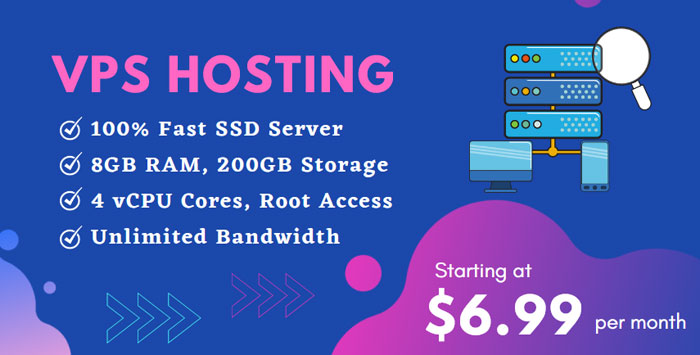Is SEO a Waste of Money? (Or Are You Just Paying for Nothing?
SEO is like the gym membership of digital marketing—everyone says you need it, but after shelling out $1,500 a month for three years, you’re left wondering: Am I even seeing results, or is this just my marketing treadmill?
Here’s the deal: SEO isn’t a waste of money if it’s done right and you know how to measure its success. But if you’re blindly throwing cash at some “SEO guru” who promises you’ll rank #1 for vague keywords, you’re probably wasting your budget.
Let’s break it down so you can stop guessing and start demanding real results.
1. What Are You Really Paying for With SEO Services?
Before calling your SEO provider a scam, let’s understand what they’re supposed to be doing:
- Keyword Research: Identifying the terms your audience is searching for.
- On-Page SEO: Optimizing your site’s content, metadata, and structure.
- Technical SEO: Fixing things like site speed, mobile usability, and crawl errors.
- Content Creation: Writing blogs, articles, and landing pages to attract traffic.
- Link Building: Getting quality backlinks to boost your domain authority.
- Analytics and Reporting: Showing how all this effort is translating into results.
The Catch:
If your SEO agency isn’t doing all of the above—or can’t explain what they’re doing—you’ve got a problem.
2. How to Measure SEO Success
SEO success isn’t just about “getting more traffic.” It’s about driving the right traffic and seeing tangible business results. Here’s what to look for:
1. Organic Traffic Growth
Check your Google Analytics for:
- More traffic from organic search over time.
- Keywords driving that traffic (are they relevant?).
2. Better Keyword Rankings
Use tools like Ahrefs, SEMrush, or Google Search Console to see:
- Are your target keywords ranking higher than before?
- Are you moving closer to page 1 of Google?
3. Local SEO (If Relevant):
If you’re a local business, are you appearing in the Google Maps 3-Pack for your area?
4. Conversions and ROI
At the end of the day, SEO isn’t just about rankings—it’s about results.
- Are you getting more leads, sales, or sign-ups from organic traffic?
- Is the revenue from those conversions covering (and exceeding) your SEO costs?
Pro Tip:
Ask your SEO provider to set up Goal Tracking in Google Analytics to measure specific actions, like form submissions, calls, or purchases.
3. How to Tell If Your SEO Service is Worth the Money
If you’ve been paying for SEO for years but aren’t sure if it’s working, it’s time to audit your agency:
Red Flags Your SEO Provider Is Wasting Your Money:
-
They’re Not Transparent:
- Do you get detailed monthly reports, or just vague updates like “We’re building links”?
-
They Focus on Vanity Metrics:
- If all they talk about is “traffic” but can’t show conversions, it’s fluff.
-
They Guarantee #1 Rankings:
- Nobody can promise this, and if they do, they’re lying.
-
No Long-Term Strategy:
- SEO isn’t magic—it’s a long game. If there’s no clear plan, they’re winging it.
What a Good SEO Report Should Include:
- Organic traffic growth (month-over-month and year-over-year).
- Keyword rankings (and changes over time).
- Backlinks earned (with quality metrics like DA/DR).
- Specific actions taken (e.g., “Optimized these pages for X keywords”).
- ROI metrics (leads, conversions, revenue).
4. When SEO Is a Waste of Money
Let’s be honest: SEO isn’t for everyone. If any of these apply to you, SEO might not be worth the investment:
-
You Don’t Have a Clear Target Audience:
- SEO can’t fix a lack of direction.
-
Your Website Is Garbage:
- If your site is slow, outdated, or has terrible UX, even the best SEO won’t save it.
-
You Expect Overnight Results:
- SEO takes months, not weeks.
-
You’re in a Super Competitive Niche with No Budget:
- Competing with giants in industries like insurance or real estate requires serious cash.
5. How to Make Sure Your SEO Works
If you’re ready to take control of your SEO budget, here’s how to ensure it’s delivering results:
1. Set Clear Goals:
- Rank for specific keywords.
- Increase organic leads by X%.
- Boost revenue from organic traffic by $X.
2. Monitor Progress Yourself:
Don’t just trust the agency. Use tools like:
- Google Analytics: To track traffic and conversions.
- Ahrefs/SEMrush: For keyword rankings and backlinks.
- Google Search Console: To monitor search performance and fix errors.
3. Hold Your SEO Provider Accountable:
Ask for specific updates:
- What keywords are we targeting?
- How are we improving the site?
- What backlinks have been built this month?
FAQs About SEO Services
Q: How much should I spend on SEO?
A: It depends on your goals, niche, and competition. For most small businesses, $1,000-$2,000/month is a solid starting point.
Q: How long does SEO take to show results?
A: Typically 3-6 months for noticeable improvements, and 12+ months for significant ROI.
Q: Can I DIY my SEO?
A: Sure, but it’s time-consuming. Start with tools like Yoast SEO for on-page optimization and Ubersuggest for keyword research.
Final Thoughts: Is SEO Worth It?
SEO isn’t a waste of money—but bad SEO is. If your provider can’t show tangible results after months (or years) of work, it’s time to reevaluate. On the flip side, when done right, SEO is one of the most cost-effective ways to grow your business long-term.
The key? Stay informed, demand transparency, and focus on measurable outcomes. And remember: SEO is a marathon, not a sprint. So lace up and make sure you’re running with the right team.












